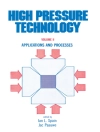This chapter discusses the role of robotics in greenhouse cultivation, starting with key challenges. Current technology is then presented, grouped by the main tasks executed by the robots. The selective harvesting of major greenhouse crops (e.g. tomato, cucumber, sweet pepper, strawberries and flowers) is explored, followed by a description of crop maintenance operations, including automatic leaf removal. Plant propagation operations, including grafting and autonomous planting of cuttings, are then analyzed. Attention is then given to crop scouting and the detection of disease and insects and control tasks using robots and drones. A section on autonomous transport and logistics in the greenhouse concludes this section, before future trends in greenhouse robotics research are discussed. Despite considerable technical advances, success rates, accuracy and speed of most developed systems remain insufficient. Future research is needed in most areas, including enhancement of grippers, sensors and manipulators. Using artificial intelligence for sensing and control of greenhouse robots is expected to intensify in the future.
Jadual kandungan
- 1 Introduction
- 2 Key challenges in using robotics in protected cultivation
- 3 State of the art and challenges: selective harvesting
- 4 State of the art and challenges: crop management
- 5 State of the art and challenges: plant propagation, grafting and planting
- 6 State of the art and challenges: crop scouting/ disease and insect detection and control
- 7 State of the art and challenges: transportation and logistics
- 8 Conclusion and future research trends
- 9 Where to look for further information
- 10 References












